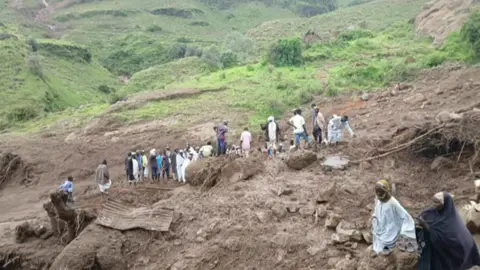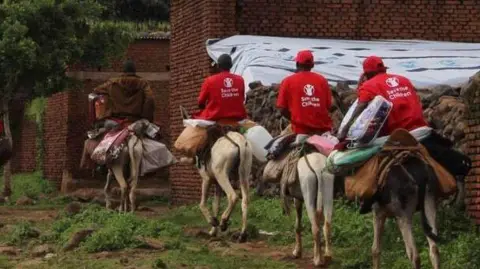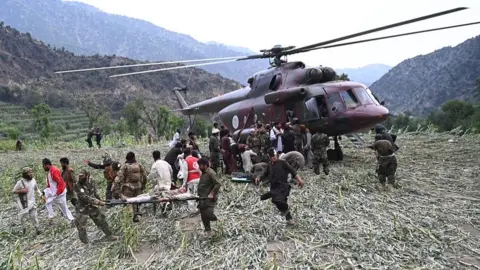A landslide has killed at least 370 people in the remote Marra Mountains in western Sudan, a UN official has informed the BBC. Antoine Gérard, the UN's deputy humanitarian coordinator for Sudan, emphasized the difficulty in assessing the scale of the incident and the actual death toll due to the area's inaccessibility.
The Sudan Liberation Movement/Army (SLM/A), the armed group that controls the affected area, previously claimed that the death toll could be as high as 1,000. Heavy rains preceding the landslide led to the disaster, which reportedly 'levelled' much of the village of Tarseen, leaving only one survivor.
In a bid to aid the victims, the SLM/A has appealed for assistance from the UN and other regional and international organizations. However, Mr. Gérard noted that providing aid to the area is fraught with challenges. We do not have helicopters; everything goes in vehicles on very bumpy roads. It takes time and it is the rainy season - sometimes we have to wait hours, maybe a day or two to cross a valley... bringing in trucks with commodities will be a challenge, he stated.
Many residents from North Darfur state had sought refuge in the Marra Mountains region following conflict between the Sudanese army and the paramilitary Rapid Support Forces (RSF), which has displaced millions.
Minni Minnawi, the army-aligned governor of Darfur, referred to the landslide as a humanitarian tragedy and emphasized the urgent need for international assistance. Similarly, the head of the African Union Commission, Mahmoud Ali Youssouf, urged warring parties to pause hostilities to facilitate efficient humanitarian aid delivery.
As the situation remains dire, the implications of this tragedy unfold against a backdrop of a civil war that has resulted in a humanitarian crisis, with significant food shortages and ongoing violence.



















